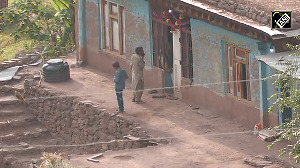The train accident, which claimed the lives of 60 people in West Bengal on Monday, has once again brought about the talk of the installation of anti-collision devices on trains.
Prakash Mandoth, an expert with the Railways, also an ex-member of the Zonal Railways Users Consultative Committee, South Western Railways, says that it is surprising that the ACD despite being proposed so long back has not been implemented fully as yet.
According to Mandoth, the ACD, the patent of the Konkan Railways, is the ideal solution to railway safety. However, the implementation of the ACD is being delayed over the years and this is due to the changing norms of the Railways Board.
The ACD is a device fitted into the engine of a train and works on GPRS. It emits a signal when a train is at a distance of 1.5 kilometres which in turn helps the drivers of both trains to slow down in order to avoid a collision.
The irony, however, is that despite the Railway board assuring that this would be implemented by 2009 in a phased manner, it has not yet seen the light of the day due to changing norms.
Mandoth says such accidents could have been clearly avoided had there been such a device in place.
"I would not be in a position to comment about why it has not been implemented as yet. This has been time-tested and has proven to work effectively. The board should bear in mind that people getting into a train do so with a lot of trust. Moreover, it is considered safer than air travel. When the public has laid its trust on the Railways, it is not right for them to play with their lives. The Railways has a lot to answer on this one, since they have not used technology when it has been readily provided to them," he said.
Mandoth adds, "Today's incident looks like a clear human failure. It is too early, however, to comment on the reason for the accident. There has been clear communication failure and this has happened due to either negligence or due to lack of training. What I have noticed over the years is that there is a training programme for the staff on the ground, but it has not been enough. Sometimes they lack seriousness and it is only proper training which will help them deal better with situations such as these."







